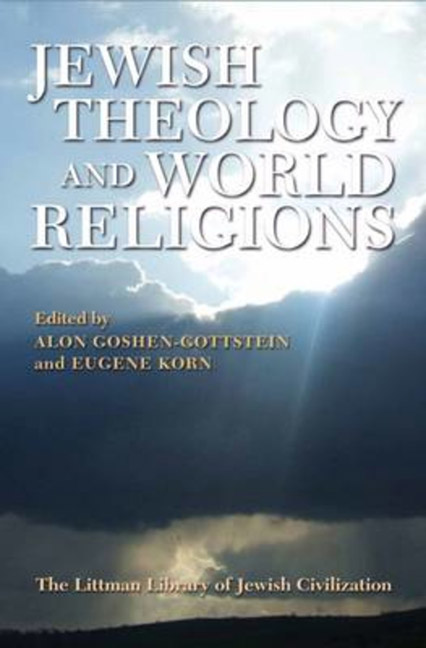Book contents
- Frontmatter
- Dedication
- Preface
- Contents
- Note on Transliteration
- Towards a Jewish Theology of World Religions: Framing the Issues
- PART I PHILOSOPHICAL PERSPECTIVES ON JEWISH PLURALISM
- PART II JUDAISM AND THE OTHER
- PART III JUDAISM AND WORLD RELIGIONS
- 8 Rethinking Christianity: Rabbinic Positions and Possibilities
- 9 Maimonides’ Treatment of Christianity and its Normative Implications
- 10 The Banished Brother: Islam in Jewish Thought and Faith
- 11 Encountering Hinduism: Thinking Through Avodah Zarah
- 12 Judaism and Buddhism: A Jewish Approach to a Godless Religion
- Concluding Reflections
- Notes on the Contributors
- Index
11 - Encountering Hinduism: Thinking Through Avodah Zarah
from PART III - JUDAISM AND WORLD RELIGIONS
- Frontmatter
- Dedication
- Preface
- Contents
- Note on Transliteration
- Towards a Jewish Theology of World Religions: Framing the Issues
- PART I PHILOSOPHICAL PERSPECTIVES ON JEWISH PLURALISM
- PART II JUDAISM AND THE OTHER
- PART III JUDAISM AND WORLD RELIGIONS
- 8 Rethinking Christianity: Rabbinic Positions and Possibilities
- 9 Maimonides’ Treatment of Christianity and its Normative Implications
- 10 The Banished Brother: Islam in Jewish Thought and Faith
- 11 Encountering Hinduism: Thinking Through Avodah Zarah
- 12 Judaism and Buddhism: A Jewish Approach to a Godless Religion
- Concluding Reflections
- Notes on the Contributors
- Index
Summary
INTRODUCTION
PART of what makes a Jewish theology of world religions a vital contemporary concern is that in the past few decades Judaism has come into contact with religions with which it previously had no significant dealings. These religions pose new challenges. Judaism has only recently encountered Hinduism in an organized way and on a large scale. Tens of thousands of Jewish, particularly Israeli, youths have encountered it. Commercial and political relations have created many opportunities for the two faiths to meet, and a formal dialogue between Jewish and Hindu religious leadership now takes place. Despite all this, there has been little reflection on the meaning of the present encounter with Hinduism, the challenges and opportunities this encounter provides, and what it might have to teach us for a Jewish theology of religions. The issues are as broad as they are complex and will require the efforts of many thinkers over an extended period of time. I am currently working on a monograph devoted to these issues, tentatively titled Beyond Idolatry: The Jewish Encounter with Hinduism, but have no illusions that I will resolve or reach finality on any of the issues raised by Judaism's encounter with Hinduism. At this point, perhaps all we can achieve is raising the questions, developing a better grasp of their complexity, and moving from simplistic notions to more complex, even if more confusing, understandings of Hinduism. Even if some answers emerge already now, we are at an initial stage of learning within this encounter. It suffices for the time being to understand the challenges of the moment and the tasks that lie ahead.
I wish to share in this chapter some of the insights that are elaborated with greater detail and complexity in the forthcoming monograph. Limitations of space force me to concentrate primarily on one issue of the many raised by the encounter. It seems to me that Hindu worship, offered to many beings, all of whom are recognized as representing god and hence divine, is the most pressing issue for most Jewish observers of Hinduism. In other words, Hinduism is considered avodah zarah—illegitimate alien worship, equivalent to idolatry. Because this perception is so common, dealing with it seems both the most urgent, and the most appropriate, way to begin the engagement with Hinduism.
- Type
- Chapter
- Information
- Jewish Theology and World Religions , pp. 263 - 298Publisher: Liverpool University PressPrint publication year: 2012



